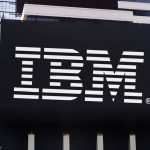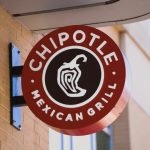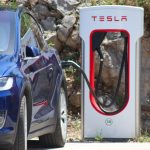PepsiCo: Q3 Results & Suspicious Share Repurchases by Sure Dividend
PepsiCo (PEP) released its 3rd quarter results yesterday… How did it go?
Here’s what CEO Indra Nooyi had to say:
“We are pleased with our performance for the third quarter of 2015. Despite ongoing volatility in many of our key international markets, we delivered strong organic revenue growth, gross margin expansion and double-digit core constant currency EPS growth (emphasis added).”
PepsiCo released another quarter of excellent results. The company saw core constant currency earnings-per-share grow 14% versus the same quarter a year ago.
The company also raised its 2015 guidance to constant currency core earnings-per-share growth of 9% for fiscal 2015.
PepsiCo has long been a favorite of The 8 Rules of Dividend Investing due to its stability, above-average dividend yield, and growth.
PepsiCo is expecting more than $10 billion in cash flows from operations in fiscal 2015. PepsiCo investors should be happy with what the company plans to do with its $10 billion in operating cash…
The company plans to return around $9 billion to shareholders in fiscal 2015 in the form of dividends and share repurchases.
About $4 billion will be returned to shareholders in the form of dividends, and $5 billion in the form of share repurchases.
The company currently has a 2.9% dividend yield. Dividend payments are nothing new to PepsiCo shareholders. The company has paid increasing dividends for 43 consecutive years.
PepsiCo is currently trading for an adjusted price-to-earnings ratio of 21.0. The company is by no means cheap at current prices. Over the last decade, PepsiCo has traded for an average price-to-earnings ratio of 18.6.
Based on the company’s current price-to-earnings ratio in relation to its historical average price-to-earnings ratio, PepsiCo appears to be slightly overvalued or trading at the upper end of fair value.
In any case, PepsiCo is not cheap at current prices. Share repurchases are not always an effective use of cash. Click here for more info on share repurchases.
Share repurchases done when a company is trading above fair value destroy shareholder value. Here’s why.
Imagine a company spends $1,000,000 in cash to buy back shares. The company is currently overvalued, and the intrinsic value of the repurchased shares is only $700,000. The company just destroyed $300,000 in value by repurchasing shares at unattractive prices.
Based on PepsiCo’s current price-to-earnings ratio, the company could better serve its shareholders by temporarily forgoing share repurchases. Instead, PepsiCo should do 1 of 3 things with the cash it has earmarked for share repurchases through the end of fiscal 2015:
- Hold the cash for later share repurchases when the stock is undervalued
- Use cash to pay down debt
- Pay cash out in the form of a special dividend
Any of these 3 alternatives would be more beneficial to PepsiCo shareholders than share repurchases done at current market prices.
There is a very good reason for PepsiCo to repurchase its shares regardless of overall market prices…
44% of the CEO’s target compensation is tied to stock price performance and total shareholder return relative to the S&P 500. Another 29% is tied to key metrics (notably earnings-per-share).
Share repurchases done at any price – even if they are detrimental to long-term shareholder value will boost earnings-per-share, and very likely share price.
It therefore benefits the CEO (and other top management) of PepsiCo to engage in share repurchases regardless of the price of the stock.
Overly Critical Analysis of PepsiCo
The analysis above is overly critical of PepsiCo. Are there conflicts of interests between shareholders and management? Yes, but that is the case with most publicly traded companies.
PepsiCo is a high quality business. In fact, the company has 22 brands that generate over $1 billion a year in sales. The table below breaks these brands down by type. Sparkling means carbonated beverages. Still means non-carbonated beverages.
| Sparkling Brands | Still Brands | Food Brands |
| Pepsi | Gatorade | Lay’s |
| Diet Pepsi | Tropicana | Walkers |
| Pepsi Max | Aquafina | Doritos |
| Mountain Dew | Lipton* | Ruffles |
| Diet Mountain Dew | Brisk | Fritos |
| 7 Up* | Starbucks RTD Beverages* | Cheetos |
| Sierra Mist | Tostitos | |
| Mirinda | Quaker |
*Lipton and Starbucks RTD Beverages are partnerships with Unilever (UL) and Starbucks (SBUX), respectively. Dr. Pepper/Snapple (DPS) owns the United States rights to 7 Up while PepsiCo owns the international rights.
With a name like PepsiCo, you’d think the company was primarily a beverage business. But PepsiCo’s chip brands are more valuable than its beverage brands.
Total Return Potential & Final Thoughts
PepsiCo shareholders can expect total returns from PepsiCo of around 10% to 12% a year over the long run, before valuation multiple changes. The company will generate these returns through dividends (~3%) and earnings-per-share growth (7% to 9% a year).
The company offers investors above-average total returns with very little business risk. PepsiCo operates is the slow changing food and beverage industry. The company’s strong brand-based competitive advantage is not going anywhere. PepsiCo stock has a low price standard deviation of just 17.3%, reflecting the company’s high quality.
Despite solid expected total returns, now is not the ideal time to buy PepsiCo. The stock appears to be trading somewhat over fair value, or at the very upper end of fair value. In either case, PepsiCo makes an excellent business to hold for the long-run, but now is not the time to add to or initiate a position in PepsiCo.











